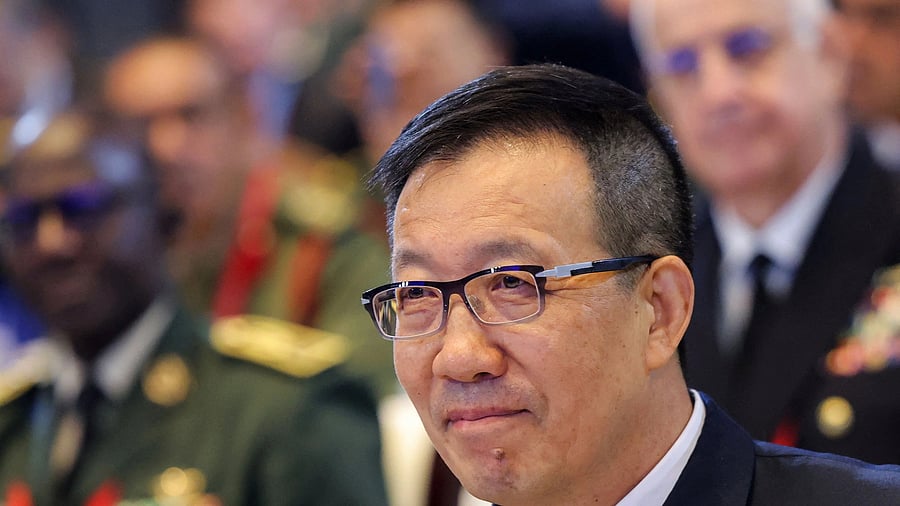
Chinese Defence Minister Dong Jun
Credit: Reuters photo
A group of American lawmakers called for better military communication between the US and China in a meeting with Chinese Defence Minister Dong Jun, as the two countries seek to steady relations ahead of a potential sitdown between their leaders.
Representative Adam Smith said Monday the bipartisan delegation wants to have “open lines of communication” about the countries’ shared interest in peace and security. In his opening remarks, Dong expressed hopes that the visit will help the US understand China and its military more.
The trip may contribute to stabilizing ties ahead of a possible meeting between Presidents Xi Jinping and Donald Trump on the sidelines of the Asia-Pacific Economic Cooperation summit in South Korea next month. Their Friday call saw Trump claim China had approved a deal for TikTok’s US operations, potentially resolving one of many sources of conflict between the world’s two largest economies.
The lawmakers, including Representatives Michael Baumgartner, Ro Khanna and Chrissy Houlahan, on Sunday met with Premier Li Qiang, who called their visit an “ice-breaking trip.” It marks the first official visit by US House representatives in six years, signaling a cautious diplomatic thaw. They were joined by Ambassador David Perdue.
A focus for the delegation is improving military-to-military communication. Smith, the Democratic leader of the House Armed Services Committee, said he is “deeply concerned that our two militaries don’t communicate more” while operating side-by-side globally.
Dong and his US counterpart, Defence Secretary Pete Hegseth, had their first call earlier this month. In that conversation, Hegseth said the US was not seeking conflict and Dong called for a stable relationship, while warning against any attempt to support independence for Taiwan.
Dong repeated the stern warning over the self-ruled island at a defense forum last week. In thinly-veiled references to Washington, he condemned “external interference” and “bullying acts,” underscoring persistent friction despite the renewed diplomatic engagements.